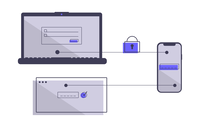Payment Service Directive 2
As a result, the EU adopted the second Payment Services Directive (2366/2015) which entered into force in 2016 and was implement by the Member States in January 2018. It is the evolution of the first Payment Services Directive (64/2007) of 2007.
What is PSD2?

It mandates that banks provide authorized third-party providers, such as Fintech firms, with access to their clients' account information using APIs (Application Programming Interfaces), allowing them to launch payments and deliver new services. For electronic payments, PSD2 also requires the use of strong customer authentication, with the goal of lowering fraud and raising consumer protection.
Overall, PSD2 intends to provide customers more alternatives and more control over their financial data by fostering a more integrated and dynamic payment ecosystem.
How does PSD2 affect financial institutions?

Second, PSD2 requires strong consumer authentication for electronic payments, which necessitates additional technology investments from banks to meet these criteria.
Finally, PSD2 gives banking institutions the chance to innovate and work with outside companies to provide their clients new and improved payment options.
How can Pideeco help you with Payment Service Directive 2?
As mentioned earlier, PSD2 can be disruptive to your company and can require time and effort to implement. Our experts at Pideeco can:- Help you to navigate the regulatory landscape of PSD2.
- Aid you in the technical and IT requirements of implementing PSD2.
- Help you with the protection of your customerís data vis-ŗ-vis third-party suppliers.
- Assist in evaluating the security guidelines of third-party suppliers.
- Provide a gap assessment of your current PSD2 processes and work with you to implement effective solutions.
- Provide training to your staff members on all aspects of PSD2.
Let us know how we can help! We'll get back to you lightning quick!
You'd rather talk face to face? Complete the form and schedule a meeting
Europol defines Financial Crime as "illegal acts committed by an individual or a group of individuals to obtain a financial or professional advant...
Return to financial crime
On the 6th of August 2019, the National Bank of Belgium ("NBB") published a press release announcing that in 2019, there was substantial growth of applications for the execution of payment activities in Belgium. A total of 34 companies are now licensed and supervised b...
Read more Author What else ?






















-806688168.jpg)

